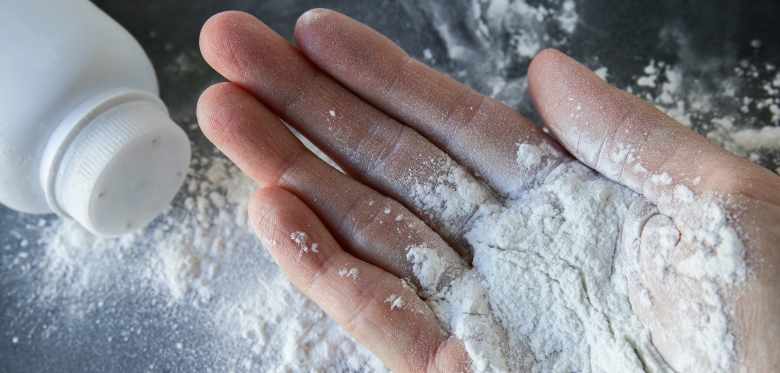A court in the United States has ordered pharmaceutical and cosmetics firm, Johnson & Johnson (J&J) to pay more than $400 million to a woman who said she developed ovarian cancer after using its branded talcum powder.
Eva Echeverria, 63, said that she developed the cancer after using J&J talc products – including ‘Baby Powder’ and ‘Shower to Shower Powder’ for close to 50 years.
The total $417 (£323 million) damages is the largest amount awarded in more than 2,400 lawsuits against J&J.
Prosecutors for Ms Echeverria – who is currently undergoing cancer treatment in hospital – argued that the company did not take adequate steps to warn about the cancer risk associated with its products. They further alleged that J&J continued to encourage women to use talc products despite knowing of studies linking ovarian cancer to the use of talc.
J&J says it will appeal the decision and defended the safety of its talc powder products.
So, is talcum powder safe?
That largely depends on who you ask.
The prosecution teams for the cases which have taken place in the United States are adamant that that the link between ovarian cancer and J&J talc products is real and credible – claims that J&J strong deny. What’s more, J&J have stated their belief, on several occasions, that the scientific evidence utterly discredits any link between their products and ovarian cancer.
While there have been safety concerns for many years – particularly when talc is used in the genital area – there is currently no conclusive evidence.
The International Agency for Research on Cancer (IARC) has classed talc as ‘possibly carcinogenic’ when used in the genital area, yet other organisations, including the UK ovarian cancer charity, Ovacome, say the risk is low.
Others have suggested that the recent series of court cases in the United States are a consequence of a time when some talcum powder was contaminated with a form of asbestos – tremolite. This was because talc, a naturally occurring mineral, is created by the same geological processes and deposits of both substances are often found close to each other.
However, commercially produced talc has been free of any asbestos traces since the 1970s and manufacturers operate strict screening to avoid any contamination.
How significant is this decision?
Potentially, very – at least in the United States.
The amount awarded to Ms Echeverria is the largest in more than 2,000 similar law suits against J&J and it is certainly among the most high profile. I would suggest that this case will likely encourage further such cases in the near future.
What’s more, despite only a handful of those 2,000 law suits actually making it to trial, the majority of juries have sided with the claimant, rather than J&J.
Aside from the sizeable financial cost of fighting each case – and paying out significant damages – there is also a considerable reputational cost for J&J to consider.
In each instance that a claimant is successful, the reputation of the J&J brand – and the credibility of its products – is damaged. An internal memo, leaked in 2016, illustrated that J&J are acutely aware of the negative publicity, with one medical consultant stating that: “anybody who denies risks” between “hygienic” talc use and ovarian cancer would be publicly perceived in the same light as those who denied a link between smoking cigarettes and cancer - "denying the obvious in the face of all evidence to the contrary”.
While this is certainly not sufficient to say that individuals within J&J believe that there is a link between their products and ovarian cancer, it shows that they understand how their continued – but necessary – denials are perceived by the general public.
Will we see similar cases in the UK?
It seems unlikely.
One commentator has suggested that if the same cases seen in the United States had gone through a UK court, the claimants would not have ‘stood a chance in hell’.
Putting this blunt language aside, there is some truth in their assertion. Such cases in the UK would have been decided by a judge, not a jury, where any perceived evidence would be under much more intense and structured legal scrutiny.
Any claimant in the UK would have to prove that J&J knew that their products were unsafe, according to the best scientific knowledge available during the period those products were being used.
Any ruling in favour of the claimant would rely on irrefutable ‘causation’ – that the use of J&J products directly and materially contributed to the ovarian cancer. However, causation is very difficult to prove.
It is perhaps revealing that cases against J&J have been brought in the United States for several years, but there has yet to be a single case heard in a UK court.
This does not rule out the possibility of a ‘test case’ in future, but – at present – there seems to be little prospect for success.



Comments